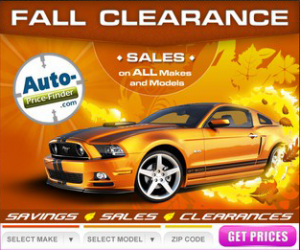
The Ultimate Guide to Choosing the Right Auto Insurance Policy
February 16, 2024 0 By Kelly BenInsurance Business’s guide reveals some key components that comprise a policy and how you can choose one tailored specifically to your needs.
While price is an important consideration, you should also factor in an organization’s reputation for providing attentive customer service and its financial stability.
Table of Contents
Toggle1. Liability Coverage
Liability coverage is the cornerstone of any car insurance policy, providing essential protection to cover damages and medical costs caused by accidents you cause as well as legal costs that arise from lawsuits brought against you.
Liability limits vary by state, but most experts advise selecting higher limits than state minimums. Furthermore, personal injury protection or medical payments policies can provide peace of mind in case of an accident and help cover medical bills associated with treatment of injuries sustained.
Liability coverage does not address repair or replacement costs following an accident; that’s what Collision and Comprehensive coverage are there for. Talk with your Mercury agent about balancing out-of-pocket costs with premium costs so that you can determine how much protection is necessary to keep you and your loved ones safe on the road.
2. Collision Coverage
Collision coverage provides reimbursement for damage to your own vehicle after an accident, up to its actual cash value (ACV), less any deductibles you might need to pay. Lenders often require collision coverage if leasing or financing a car, but it can still be beneficial even if you own it outright.
You might be tempted to forgo collision coverage if your vehicle is paid off and you have significant savings set aside to replace it in an accident, but take your risk into account: Montana, New Mexico, Alabama or Oklahoma rank among the states with highest accident per capita rates so comprehensive and collision policies should also be purchased as they can help cover both repair costs as well as car value estimation and potential claims costs in these dangerous locations. When making this decision it’s wise to calculate car values against policy costs before making your final decision.
3. Comprehensive Coverage
Comprehensive policies provide actual cash value (ACV) coverage in the event of damage from non-collision events such as natural disasters such as hailstorms and hurricanes, theft, fire and vandalism.
Your decision on comprehensive car coverage depends on several factors, including its value, your preferences, and financial circumstances. Furthermore, consider where you live as well as potential risks from severe weather-related disasters or crimes such as thefts.
Finding an auto policy that offers all of the coverages you require and want may take some time. When looking for the ideal policy, be sure to consider factors like competitive prices, stellar customer service outside claims management and regular policy reviews as these will all play an integral part in making sure you find suitable car coverage within your budget and lifestyle.
4. Uninsured Motorist Coverage
Uninsured motorist coverage (UM or UIBI), also known as uninsured/underinsured motorist insurance (UIBI), helps cover medical costs and lost wages when involved in an accident with someone without sufficient car insurance or who lacks it altogether. Some states mandate this coverage as part of the minimum auto insurance requirements.
CR’s insurance experts suggest selecting a policy with uninsured motorist coverage equal to your liability limits. You can purchase uninsured motorist insurance independently or as part of a package, covering property damage and bodily injury as well. Typically, insurers allow their customers to select their ideal UM limit; generally speaking, higher limits tend to incur more costly premiums.
5. Underinsured Motorist Coverage
Uninsured motorist coverage (UM or UIM), also referred to as Umbrella Coverage or Uninsured Motorist Coverage, provides coverage for medical expenses and damages to your car caused by drivers without sufficient liability insurance policies or only minimum limits of coverage. Uninsured Motorist coverage is required in some states while it’s highly recommended in all others.
UM and UIM coverage is often sold together, and you can typically select similar limits as those chosen for your own liability policy. Additionally, MedPay coverage pays reasonable medical expenses regardless of who caused an accident.
Consider adding collision and comprehensive coverage to your policy as well. To get more information, contact a RamseyTrusted local provider now!





